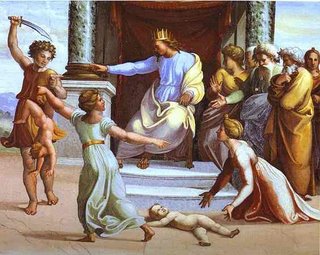Led By The Spirit
"Jesus, full of the Holy Spirit, returned from the Jordan and was led by the Spirit in the desert, where for forty days he was tempted by the devil."
Luke 4:1-2
Ash Wednesday we call it, the day that begins the Christian season of Lent, and this year it begins Feb. 17. Lent is the un-fun part of the Christian year. It's the forty days we focus on things like discipline and fasting and when we read the Bible stories about the Israelites wandering in the desert and the above story about Jesus' temptation in the wilderness. It's a time when we remind ourselves about the brutally hard aspects of life and the uncomfortable fact that a true resurrection requires an actual death. Churches often cease using the word Alleluia during these 40 days and for good reason. It is not a fun time.
It is, however, an instructional and formative time. It was during the 40 years of wandering in the wilderness that a group of freed Hebrew slaves became a nation. It was the 40 days of temptation in the wilderness that gave Jesus the focus and strength needed to embark on his life's mission. In that sense, Lent is a bit like school. It's hard...and yet the harder it is, the better you turn out in the end if you put your mind to it and have the right support.
What I find comforting in both the story of the Exodus and the story of Jesus' temptation is that God is present. In the Exodus story God takes the form of a cloud by day and a pillar of fire by night, leading the Israelites across the harsh desert. Luke starts off his story by pointing out the same thing. The Spirit leads Jesus in the wilderness. God is there--even though Jesus is hungry and the devil shows up.
I also find it comforting to know that the hard, harsh desert times of our lives are not necessarily just my own rotten luck or punishment for my sins. It happened to Jesus, after all. No matter how or why those times have come, the Spirit is here with me...leading me...trying to make me into something stronger, better, and more aware than before. Too often I see the devil and fail to see the Spirit.
Around the world we are in a Lenten, desert season of sorts. Times are tough and just when we're down the blizzards come. Those who are supposed to lead us bicker like school children and call each other names. We encourage them to keep it up by voting our hatreds and keeping the ratings high for media outlets that do the same. We keep seeing the devil and failing to see the Spirit.
The season of Lent reminds us that hard times are where greatness is given birth. It was in the years of the Great Depression and World War II that the people we now call "The Greatest Generation" were molded. I would say that the Spirit led them in that time, even though some could see only the devil. I think we are in the same kind of desert now--the kind where it's hard to find water and the climate is uncomfortable and it seems like every hope turns out to be a mirage. But the Spirit is here, too, leading us to something better.
Lent reminds us that seeing that Spirit in a sandstorm requires discipline. We need to know the One we are looking for, and that requires time in prayer, study, and contemplation. Where I see a solid chair, a physicist sees a hub of molecular activity, but she didn't see that at birth. She learned to see it through disciplined training. Lent is that training for spiritual life.
We are in the desert. The devil is here and cannot be ignored. But the Spirit is leading us. Follow. The greatness of God is trying to be born in you.
Labels: Anne Robertson, desert, discipline, Lent, Massachusetts Bible Society, spiritwalkers


















